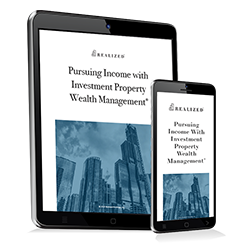
More than 71 million Americans will receive Social Security benefits in 2024. That includes retirees, people who qualify for SSI disability benefits, and some survivors. Each one will receive an increase in their benefit amount for 2024 compared to 2023 of 3.2 percent, due to a cost-of-living increase tied to inflation.
What determines the amount of my Social Security benefits?
Workers contribute to Social Security through payroll deductions (or through income tax filing if they are self-employed) as a percentage of their income. Contributions and benefits are progressive, meaning that people with higher earnings pay more but also receive higher benefits when they retire. The contributions to Social Security are based on earned income from salary, wages, or self-employment. Capital gains are not included in income to determine either contributions or benefits.
Does earned income affect my benefits?
Although most people can choose to begin receiving Social Security benefits at the age of 62, this threshold is not considered full retirement age. Choosing to receive benefits before reaching full retirement age (67 for most people but lower for some who are closer to retirement) can affect your benefit level and also result in reductions if you have earned income.
First, retiring at 62 or any time before reaching your full retirement age means your benefit will be lower. This reduced amount doesn't increase when you reach full retirement age; instead, the amount you receive remains lower as long as you live. It’s helpful to note that recipients can increase their benefits more by postponing retirement until age 70, even with a lower full retirement age.
Second, the impact on benefits of earning income in retirement depends on the retiree's age. For example, if the recipient is 62 or any age less than full retirement, the SSA will reduce their benefits partially, depending on how much money they make. After they reach a threshold, the benefit will decrease by $1 for every $2 the beneficiary earns. However, income does not result in a corresponding benefit drop once the recipient reaches the designated full retirement age.
The formula for the reduction has two levels. In a year that the recipient is under full retirement age for the entire year, the SSA will reduce the benefits by 50% for earnings above $21,240. For example, earning $40,000 in a year when you are not yet full retirement age will reduce your benefits by $9,380.
$40,000-$21,240=$18,760/2=$9,380
In the year that you will reach full retirement age, the formula and threshold are different. Your benefits will be reduced by one-third for amounts over $56,520. When you reach your full retirement age, earnings after that date are not subject to any reductions.
Capital gains do not affect Social Security benefits.
Capital gains and other kinds of income- rental payments, inheritances, pensions, interest, or dividends—do not reduce your Social Security payments. So, selling investment property may leave you with a tax bill but won’t affect your SSA benefits.
However, for individuals with very high incomes, there is another consideration for deciding when to sell investment property: the Net Income Investment Tax (NIIT). This tax is 3.8 percent that the IRS collects on investment income for those with incomes above specific threshold amounts. The levy applies to capital gains, interest, rental and royalty income, and passive business income, but not salary, wages, or Social Security benefits. Those sources of income are part of the calculation to determine if you are subject to the tax, which is determined by calculating your MAGI (modified adjusted gross income).
This material is for general information and educational purposes only. Information is based on data gathered from what we believe are reliable sources. It is not guaranteed as to accuracy, does not purport to be complete and is not intended to be used as a primary basis for investment decisions. It should also not be construed as advice meeting the particular investment needs of any investor.
This material is for general information and educational purposes only. Information is based on data gathered from what we believe are reliable sources. It is not guaranteed as to accuracy, does not purport to be complete and is not intended to be used as a primary basis for investment decisions. It should also not be construed as advice meeting the particular investment needs of any investor.
Hypothetical examples shown are for illustrative purposes only.



